By Scott Simmie, InDro Robotics
Today, building basic robots isn’t hugely challenging for engineers – though, of course, some robots are a lot more complex than others.
The really tough part is making those robots be useful. Tasks like navigating, capturing thermal imagery and other data – even identifying and manipulating objects – all require much more than wheels and sensors and end effectors (the robotic equivalent of hands). Regardless of whether the robot is simple or complex, it needs brains.
Those brains consist of both hardware and software, with specific bundles of code that can help with specific tasks. And that’s where the Robot Operating System, or ROS, comes into play. ROS.org is a repository of software packages, purpose-built for specific robotic applications by a global network of collaborators.
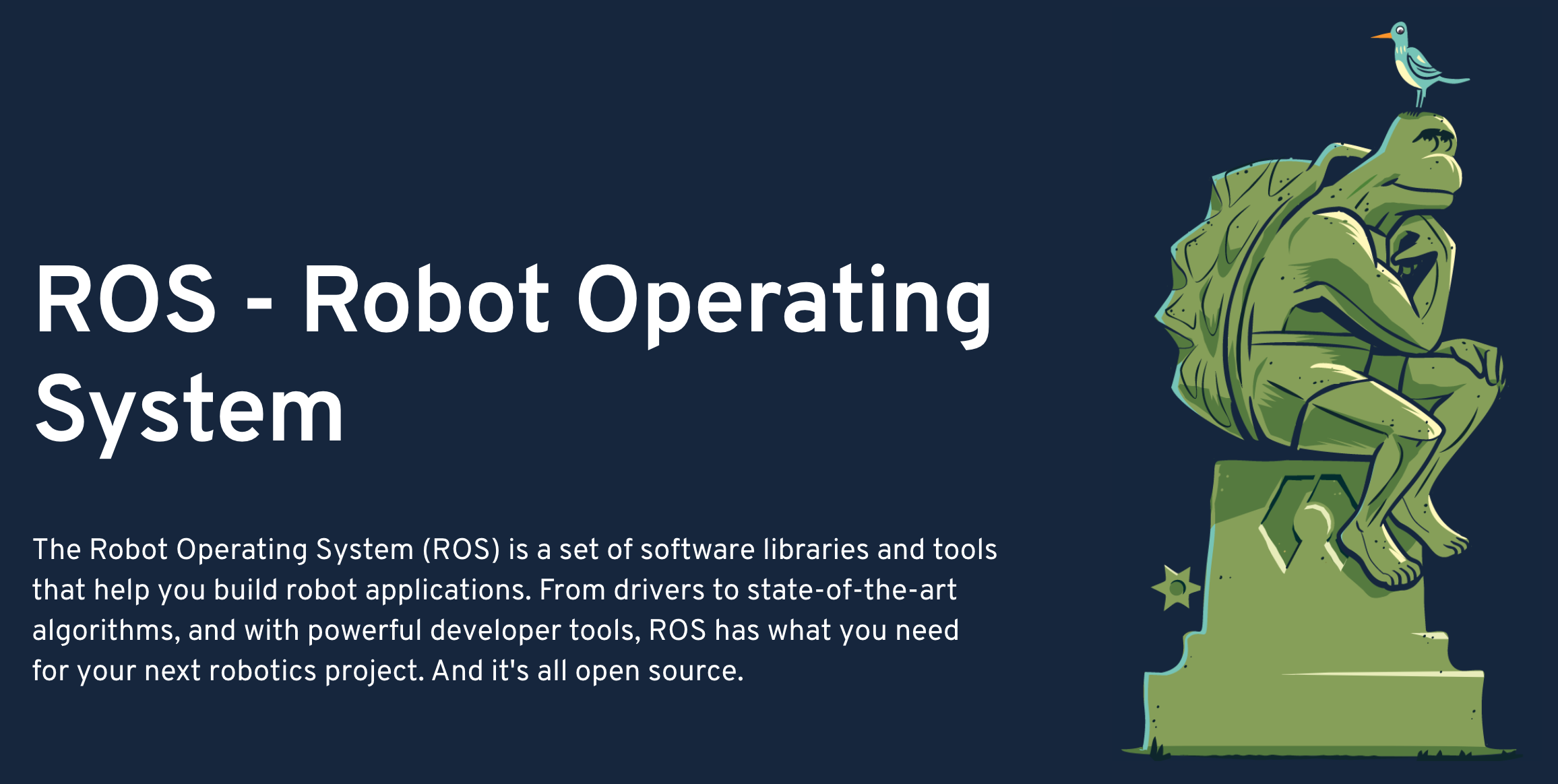
As the organization’s website explains it, ROS “is a collection of tools, libraries, and conventions that aim to simplify the task of creating complex and robust robot behavior across a wide variety of robotic platforms.
“Why? Because creating truly robust, general-purpose robot software is hard. From the robot’s perspective, problems that seem trivial to humans often vary wildly between instances of tasks and environments. Dealing with these variations is so hard that no single individual, laboratory, or institution can hope to do it on their own.”
And so ROS could be thought of as a super helpful toolkit, where collaborators upload and share code they’ve developed – and also download and integrate (or even modify) code others have written in order to make their robot carry out required tasks, including specific ways of communicating with an operator or base station.
ROS is cool, but could it be even cooler?
Some time back, we started to ponder this question. Specifically, what if you could pack some of that software in a box – along with the hardware required to run it? And what if that box could easily be integrated to a ground-based robot (most already use ROS drivers) to get it up and running as seamlessly as possible?
That’s the concept of a new InDro Robotics product called InDro Commander, developed by Engineering Manager Arron Griffiths in conjunction with the InDro Robotics Area X.O team.
Arron had been working with ROS for about five years, so he already had a great understanding of the available software tools. Arron has worked in robotics for more than a decade now (he was also the Senior Application Engineer at Clearpath Robotics prior to joining InDro Robotics). And Unmanned Ground Vehicles, or UGVs, is an area that has really picked up for InDro since we partnered with Chinese robotics leader AgileX. The picture below is of “Scout” – one the company’s UGVs.
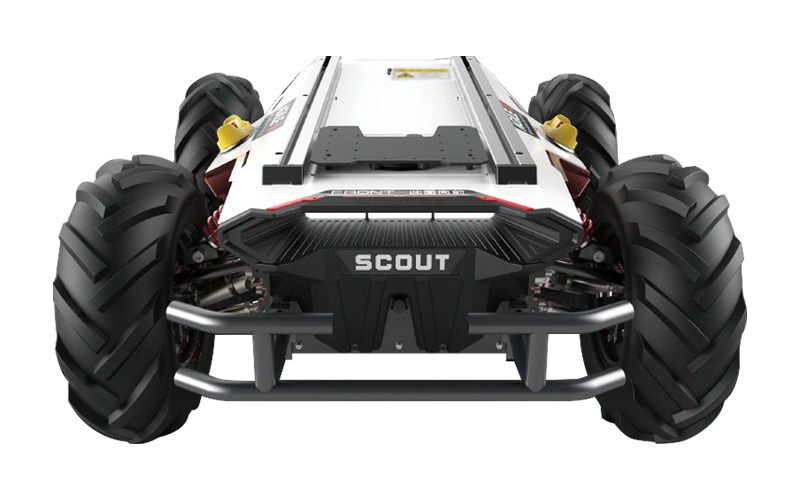
With a solid understanding of the software and the hardware required to run it, Arron realized there could be tremendous potential for an “all-in-one, bolt-on” solution. Such a device could get an ROS-compatible robot up and running much more quickly, with zero hassle. In a nutshell, that’s the concept behind InDro Commander. Here’s Arron:
“We’ve created a hardware product around the concept of a simple ROS module, which can be utilized on multiple different robot types. We’re also trying to make it platform-agnostic. We actually don’t want to make a robotic platform, we want to make a box that has robotic systems in it, to make other robotic platforms smarter.”
We’ve been using our InDro Commander on the AgileX Scout Mini, a great R&D platform. And, well, it works like a charm. InDro Commander is also compatible with all the AgileX platforms and any other ROS-ready robot platform.
In fact, we’re so proud of this InDro Robotics innovation that we produced this video for the recent ROS World 2021 Virtual Conference. (At that time, we were calling it ROS-IN-A-BOX):
InDro Commander integrates easily
That’s a key piece here. The box contains everything a developer or end-user would need. EDGE computing is done onboard by the NVIDIA Jetson processor, reducing latency and unlocking potential for AI-related tasks like object recognition or change detection. Connectivity is via 4G/5G, and the box can utilize the CAN (Controller Area Network) protocol, Serial or Ethernet. The ruggedized box has its own cooling system and power regulator, and has an Ingress Protection factor of IP55. It’s literally a solution you can bolt onto pretty much any ground-based robot and begin remote teleoperations over 4G or 5G.
And yes, InDro Commander vastly simplifies things.
“It’s just two wires (battery power and communications) people plug in,” says Arron. “The box already has cameras, communications, power regulators – all inside the box. So you’re not fiddling with all of these various peripherals. It’s truly a self-contained ecosystem. Suppliers, OEMs, they don’t have to think – they just have to bolt this box on.”
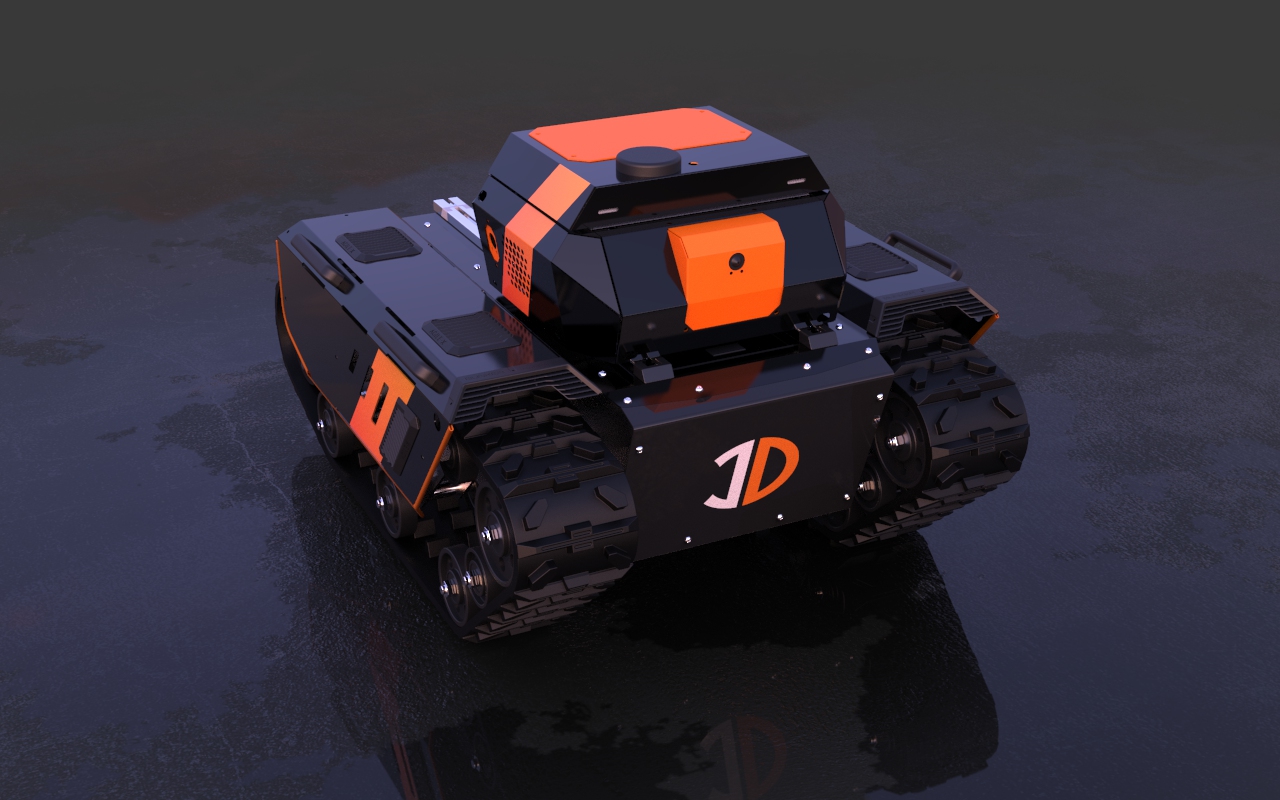
InDro Robotics has long been known for its R&D in the drone space, and has garnered multiple industry “firsts” as a result. Now, with the company’s expansion into ground robotics, InDro Commander is a significant breakthrough – not only for InDro, but for others who will immediately see the benefit of this solution.
“We work closely with academia and collaborate with industry partners and end users,” explains InDro Robotics CEO Philip Reece.
“The common question is: ‘How can we integrate this sensor or piece of tech with this robot or system?’ Now we have a simple working answer to this question, as InDro Commander is designed as a Plug and Play all-in-one module and is platform agnostic.” (Providing the platform either has a ROS driver already, or working example (Python/C++) code which Indro can use to develop a custom ROS driver.)
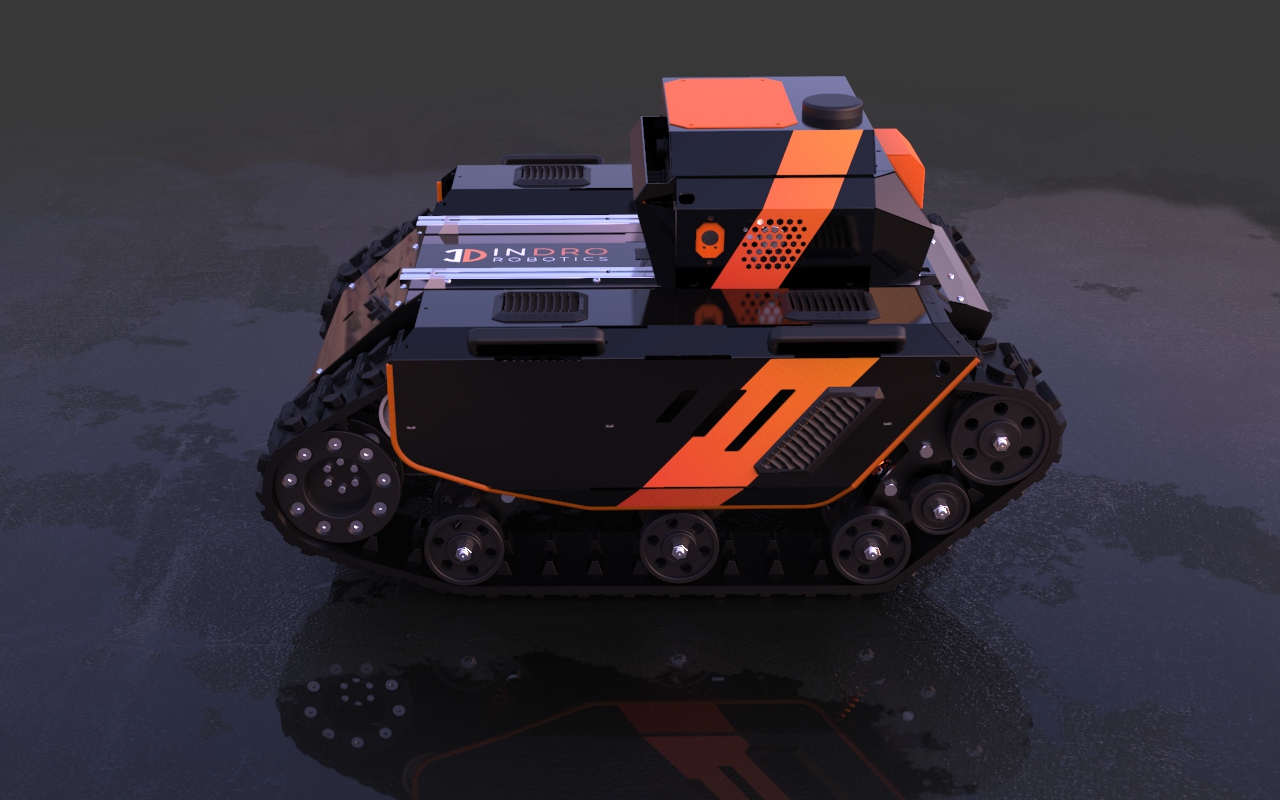
Reece says the creation of this product is a very different solution, which he anticipates will help many in the Unmanned Ground Vehicle (UGV) space.
“There are many UGV companies, and more start up every day. Ninety-five per cent of them only make custom solutions for their own. hardware. InDro is doing things differently,” he says.
“InDro Commander is an important addition to our technology development, as we are supplying the industry with a number of different ground robots, and they are interacting in many different ways. InDro Commander will build on the benefits of a common operating system such as ROS, by bringing a standard suite of sensors and systems (camera, GPS, IMU, Computers Power distribution, communications, 4/5G) that can all be simply but powerfully integrated onto any flavour of UGV.”
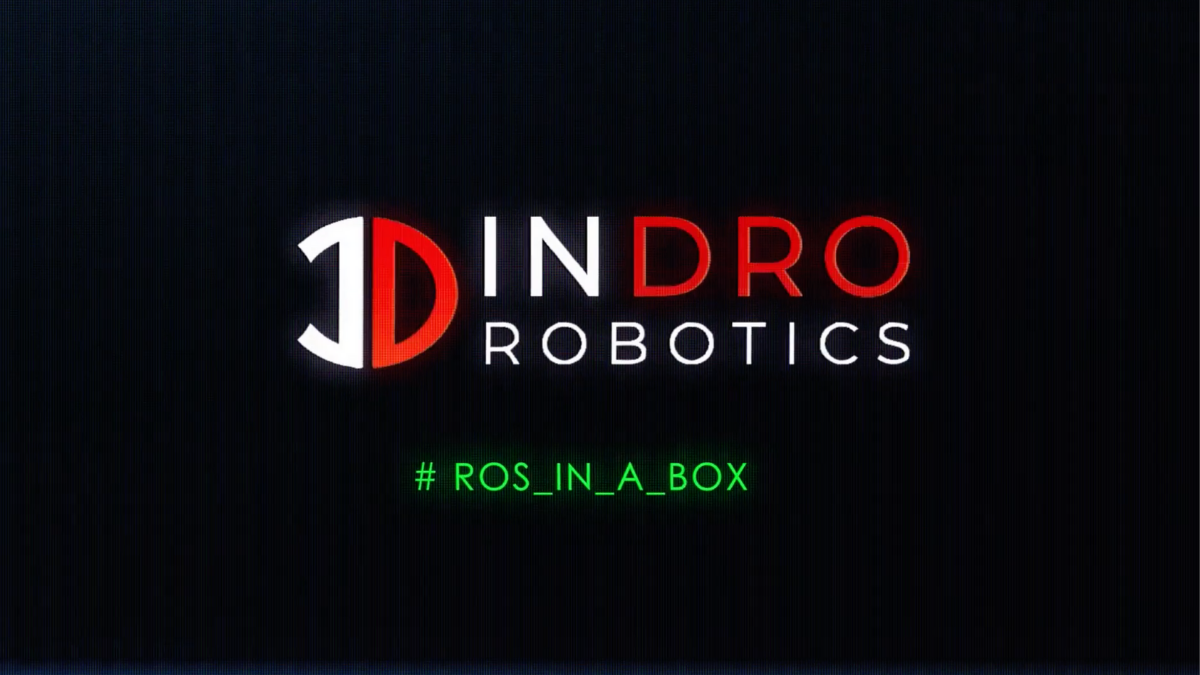
InDro partners with ROCOS
We’re already quite proud of the InDro Commander solution. But we’ve taken things a step further, partnering with ROCOS. The company’s Robot Operations Platform allows an operator to connect, monitor and control robots – whether it’s a single unit or an entire fleet. But that’s not all.
ROCOS was recently acquired by DroneDeploy, one of the world leaders in drone data acquisition, interpretation and photogrammetry. And what does that mean? Well, imagine having data acquired by a ground robot seamlessly integrated with what is captured by air and presented as meaningful data for the end-user. Further picture a desktop, browser-based console where you can program aerial or ground-based missions and monitor a feed as they unfold in real-time.
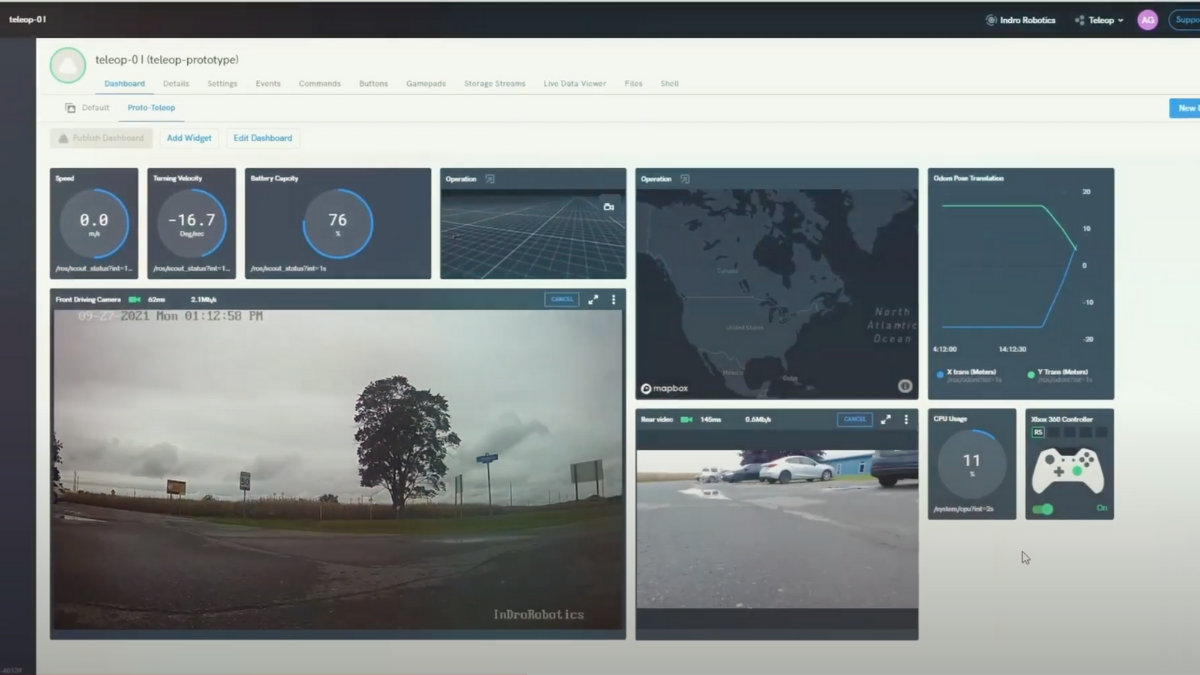
Force multiplier
Whether the use-case is industrial, agricultural, security – and much more – having eyes in the air, combined with robotic boots on the ground, can only be a force multiplier.
We’ve already seen what InDro Commander can do in our own testing; we can’t wait to see what others do with this solution.
For more information on InDro Commander, contact us here.

